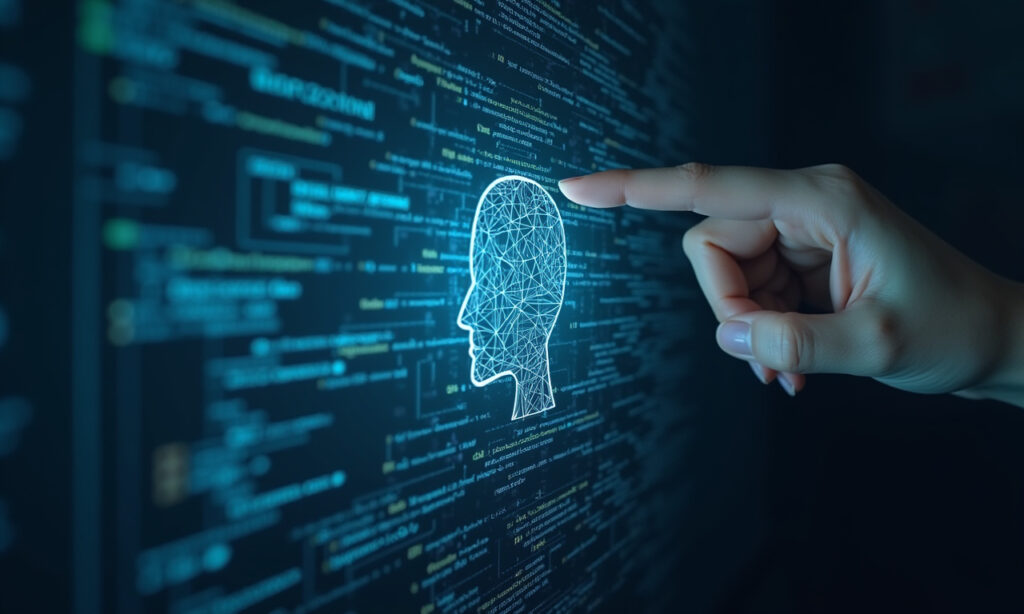The Battle for AI’s Future: Open Source vs. Big Tech
The debate over the future of Artificial Intelligence (AI) is intensifying, with a clear divide between the dominance of Big Tech and the rising tide of grassroots, community-driven innovation. This dichotomy will significantly influence the direction of the AI industry in the coming years.
Open Source – A Route to Ethical AI Innovation
Open source principles and AI are inherently compatible, both thriving on collaboration and shared innovation. This synergy allows researchers and developers to accelerate technological advancements collectively while ensuring broader access to emerging technologies.
Transparency and Accountability
At the heart of open source AI lies transparency. By making algorithms, models, and data sets freely available for examination, open source AI ensures that biases can be identified and rectified, fostering accountability in AI decision-making processes[1][2][3].
Diverse and Unbiased Development
The collaborative nature of open-source projects brings together a diverse range of contributors, which is crucial for developing unbiased AI systems. Multiple perspectives help address issues of fairness and representation, ensuring that AI algorithms are more equitable and just[1][2][4].
Innovation with Responsibility
Open-source communities are not just drivers of innovation but also champions of ethical considerations. These communities often include ethicists, social scientists, and end-users, who collectively consider the societal impact of AI technologies. This approach ensures that innovation is balanced with responsibility, leading to more ethical AI development[1][2][4].
Democratizing AI
Open-source AI democratizes access to AI technologies, preventing monopolies by large tech corporations and ensuring that these tools are not limited to a select few. This democratization is essential for driving competition, reducing costs, and promoting ethical usage across various sectors[1][3][4].
The Role of Regulation
While open source AI offers numerous benefits, effective regulatory frameworks are essential to guide its development and implementation.
Ensuring Transparency and Trust
Regulations that promote transparency and trust are critical. The White House has acknowledged the benefits of open source AI, highlighting its potential to foster innovation and allow a broader range of actors to examine and improve models. Community-governed development and open standards can increase trust and address AI safety concerns[2][4].
Addressing Security and Privacy
Open-source AI, while beneficial, also poses security and privacy challenges. Standardized security protocols and tools like Google’s TensorFlow Privacy toolkit can help mitigate these risks without stifling innovation. By rallying around shared standards, industry players can address security concerns effectively[2][3].
Balancing Openness and Security
While full transparency is ideal, there are valid reasons for maintaining some proprietary elements. A balanced approach, where core models are open-source but specific implementations remain proprietary, can offer the best of both worlds. This balance ensures that open-source AI does not compromise security or intellectual property[3].
Practical Applications and User Experience
The impact of open source AI is already being felt across various sectors.
Healthcare and Finance
In healthcare and finance, open-source AI models are being used to make critical decisions. Transparency around these models is essential, and tools like IBM’s AI Fairness 360 help ensure that AI outcomes are fair, explainable, and free from biases[2][4].
Driving Innovation and Competition
Open-source AI fosters a competitive environment where startups and smaller companies can access top-tier AI models without exorbitant licensing fees. This has led to rapid innovation, as seen in the success of open-source projects like DeepSeek, which have challenged the dominance of big tech in AI development[3][4].
The Road Ahead: Challenges and Opportunities
While open source AI presents a promising pathway to ethical and innovative AI, several challenges need to be addressed.
Quality Control and Standardization
Open-source projects vary in quality, and robust mechanisms for quality control and standardization are crucial to ensure reliability and safety. Initiatives like the Linux Foundation’s LF AI & Data project are working to establish trusted AI and data infrastructure, uniting developers, organizations, and users[1][2].
Sustainability and Funding
Open-source projects often rely on volunteer work or external funding. Finding sustainable funding models is critical for the long-term viability of these projects. Large corporations that benefit from open-source AI have a moral obligation to support the libraries and models they use[1][2].
Ethical Guidelines and Governance
Developing and enforcing ethical guidelines in a decentralized environment is complex. Effective governance models are necessary to ensure that open-source AI adheres to ethical principles. Initiatives like Mozilla’s Responsible AI Challenge are driving efforts to formalize ethical guidelines for open-source AI[1][2][4].
Conclusion
Open source AI stands at the forefront of a revolution that promises to make AI more ethical, accessible, and transparent. By promoting transparency, diversity, and collaboration, open source AI aligns closely with the principles of ethical AI. As the industry continues to evolve, fostering an ethical, open-source AI ecosystem is not just desirable but imperative, ensuring that technological progress is aligned with societal good and ethical responsibility.
